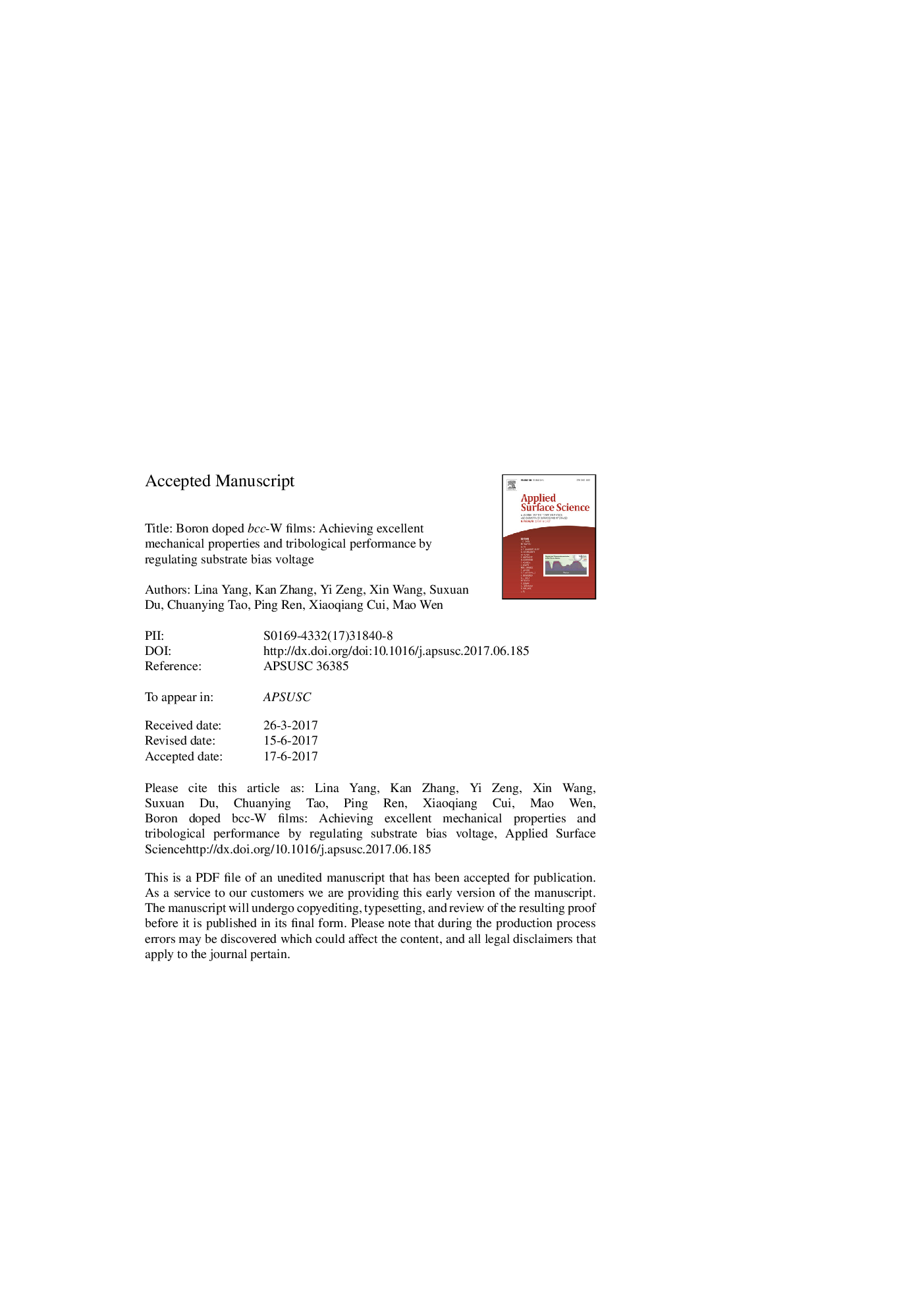| کد مقاله | کد نشریه | سال انتشار | مقاله انگلیسی | نسخه تمام متن |
|---|---|---|---|---|
| 5349917 | 1503548 | 2017 | 24 صفحه PDF | دانلود رایگان |
عنوان انگلیسی مقاله ISI
Boron doped bcc-W films: Achieving excellent mechanical properties and tribological performance by regulating substrate bias voltage
دانلود مقاله + سفارش ترجمه
دانلود مقاله ISI انگلیسی
رایگان برای ایرانیان
کلمات کلیدی
موضوعات مرتبط
مهندسی و علوم پایه
شیمی
شیمی تئوریک و عملی
پیش نمایش صفحه اول مقاله

چکیده انگلیسی
Boron doped bcc-W (WBx, x = B/W) films were deposited on Si(100) substrates by magnetron co-sputtering pure W and B targets. Our results reveal that when the absolute value of substrate bias voltage (Vb) increases from floating to 240 V, the value of x monotonously decreases from 0.18 to 0.04, accompanied by a phase transition from a mixture of tetragonal γ-W2B and body-centered cubic α-W(B) phase (âVb â¤Â 60 V) to α-W(B) single phase (âVb > 60 V). Hardness, depending on Vb, increases first and then drops, where the maximum hardness of 30.8 GPa was obtained at âVb = 60 V and far higher than pure W and W2B theoretical value. In the mixed phase structure, the grain boundaries strengthening, Hall-Petch effect and solid-solution strengthening induced by B dominate the strengthening mechanism. Astonishingly, the film grown at âVb = 120 V still possesses twice higher hardness than pure W, wherein unexpectedly low (6.7 at.%) B concentration and only the single α-W(B) phase can be identified. In this case, both Hall-Petch effect and solid-solution strengthening work. Besides, low friction coefficient of â¼0.18 can be obtained for the films with α-W(B) phase, which is competitive to that of reported B-rich transition-metal borides, such as TiB2, CrB and CrB2.
ناشر
Database: Elsevier - ScienceDirect (ساینس دایرکت)
Journal: Applied Surface Science - Volume 423, 30 November 2017, Pages 275-282
Journal: Applied Surface Science - Volume 423, 30 November 2017, Pages 275-282
نویسندگان
Lina Yang, Kan Zhang, Yi Zeng, Xin Wang, Suxuan Du, Chuanying Tao, Ping Ren, Xiaoqiang Cui, Mao Wen,